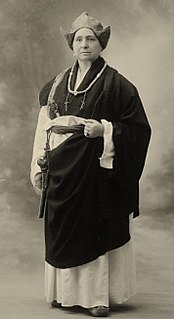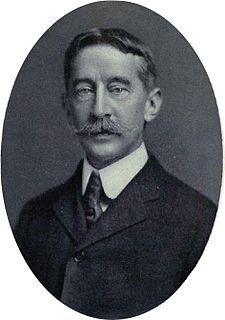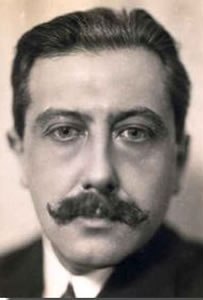A Quote by Alexandra David-Neel
Landscapes have a language of their own, expressing the soul of the things, lofty or humble, which constitute them, from the mighty peaks to the smallest of the tiny flowers hidden in the meadow's grass.
Related Quotes
Brave old-flowers! Wall-flowers, Gilly flowers, Stocks! For even as the field-flowers, from which a trifle, a ray of beauty, a drop of perfume, divides them, they have charming names, the softest in the language; and each of them, like tiny, art-less ex-votos, or like medals bestowed by the gratitude of men, proudly bears three or four.
For the flowers are great blessings. For the Lord made a Nosegay in the meadow with his disciples and preached upon the lily. For the flowers have great virtues for all senses. For the flower glorifies God and the root parries the adversary. For the flowers have their angels even the words of God's creation. For there is a language of flowers. For there is a sound reasoning upon all flowers. For flowers are peculiarly the poetry of Christ.
Far away in Montana, hidden from view by clustering mountain-peaks, lies an unmapped northwestern corner- the Crown of the Continent. The water from the crusted snowdrift which caps the peak of a lofty mountain there trickles into tiny rills, which hurry along north, south, east and west, and growing to rivers, at last pour their currents into three seas. From this mountain-peak the Pacific and the Arctic oceans and the Gulf of Mexico receive each its tribute. Here is a land of striking scenery.
The great events of life often leave one unmoved; they pass out of consciousness, and, when thinks of them, become unreal. Even the scarlet flowers of passion seem to grow in the same meadow as the poppies of oblivion. We reject the burden of their memory, and have anodynes against them. But the little things, the things of no moment, remain with us. In some tiny ivory cell the brain stores the most delicate, and the most fleeting impressions.
I call the light and high aspects of my being spirit and the dark and heavy aspects soul. Soul is at home in the deep, shaded valleys. Heavy torpid flowers saturated with black grow there. The rivers flow like warm syrup. They empty into huge oceans of soul. Spirit is a land of high white peaks and glittering jewel-like lakes and flowers. Life is sparse and sounds travel great distances. There is soul music, soul food, and soul love... People need to climb the mountain not simple because it is there But because the soulful divinity needs to be mated with the spirit.
How it is that animals understand things I do not know, but it is certain that they do understand. Perhaps there is a language which is not made of words and everything in the world understands it. Perhaps there is a soul hidden in everything and it can always speak, without even making a sound, to another soul.
We must remain as close to the flowers, the grass, and the butterflies as the child is who is not yet so much taller than they are. We adults, on the other hand, have outgrown them and have to lower ourselves to stoop down to them. It seems to me that the grass hates us when we confess our love for it. Whoever would partake of all good things must understand how to be small at times.






































